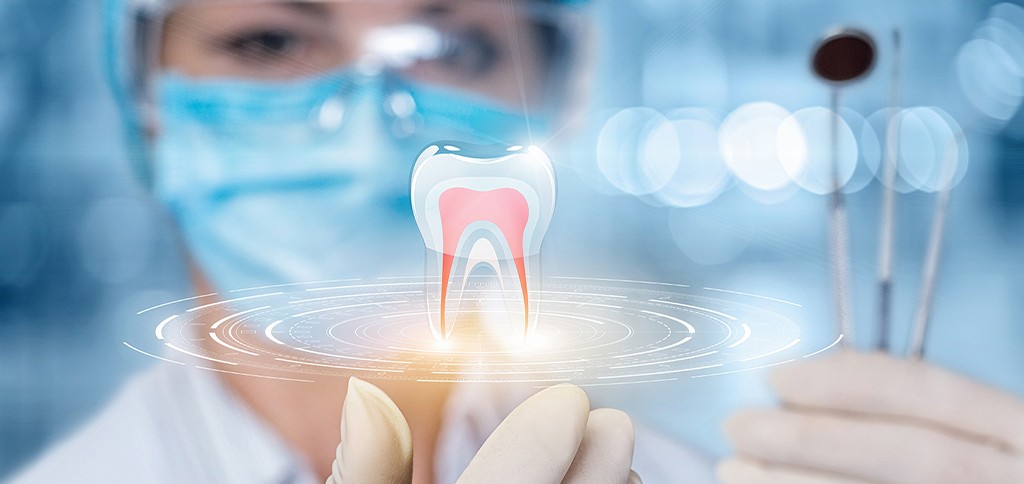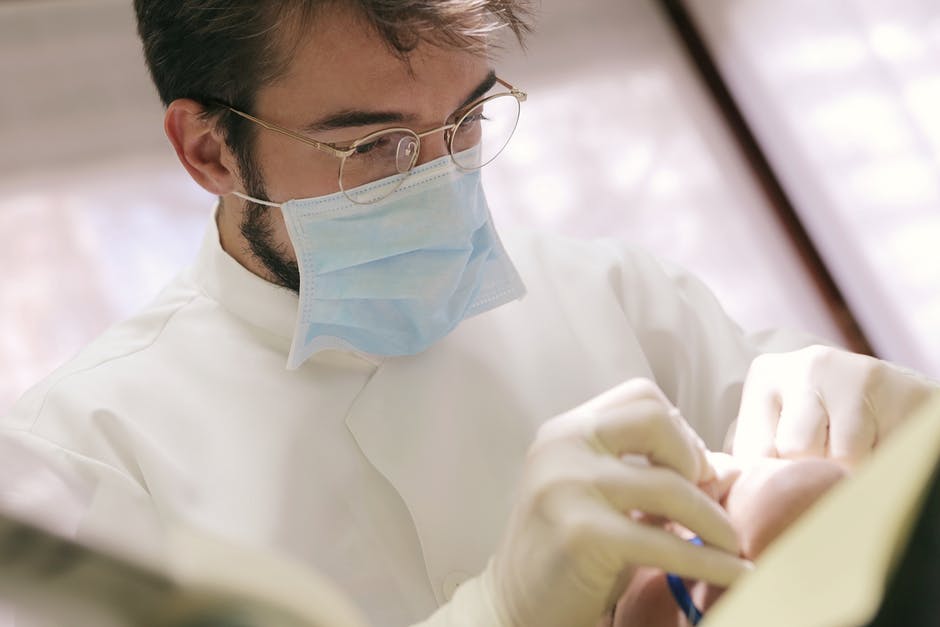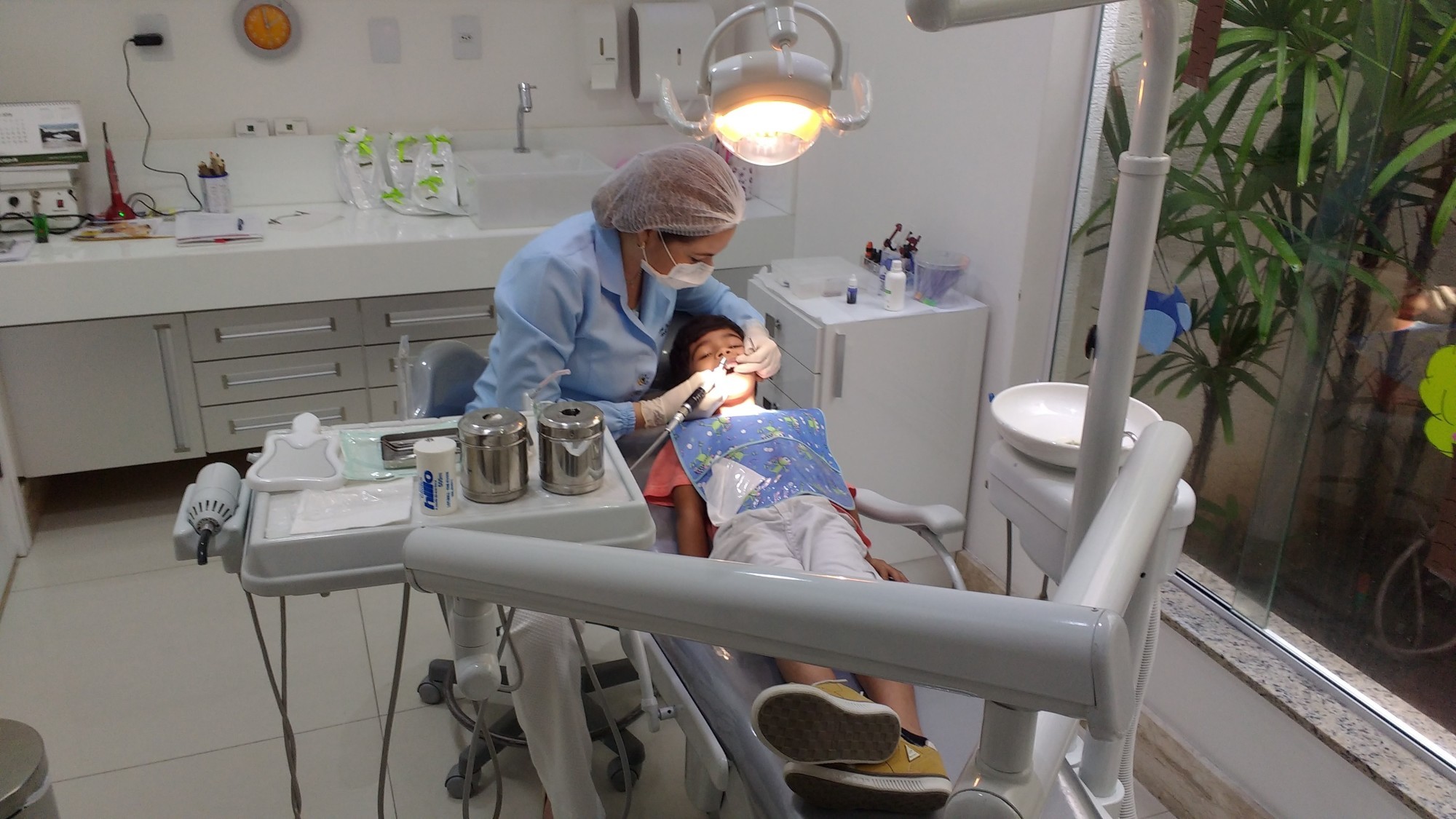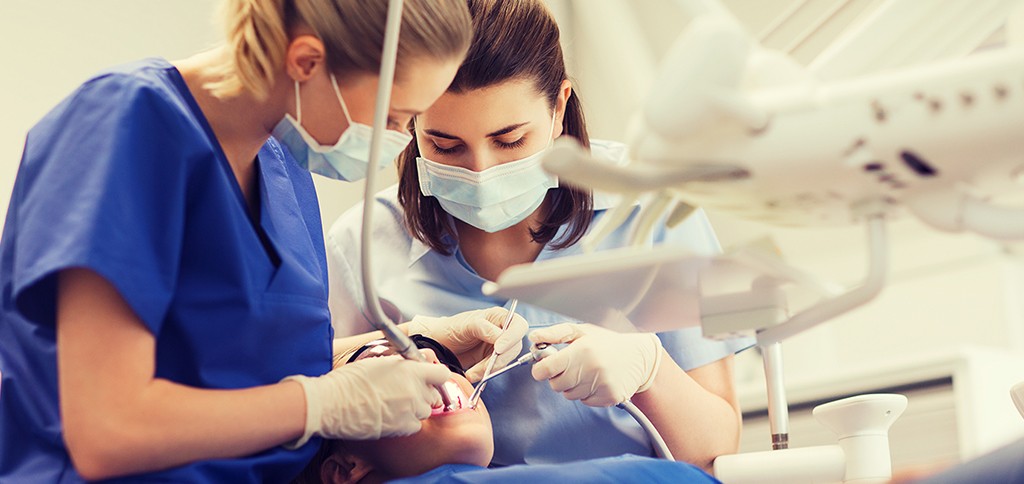Today, the disruptive innovation happening on the technology front is taking every industry by storm. The field of dentistry is no different.
The global dental industry is anticipated to witness strong growth in the coming years. One of the many reasons growth is occurring at such a rapid pace is because the fields of dental surgery and dental science are witnessing numerous technological advancements, especially in the area of implants and oral maxillofacial surgery.
But that’s not all.
State-of-the-art technological advancements are also helping dental care providers make the shift to value-based care – one where patients are at the epicenter of all functions and their comfort is given priority. This can significantly ameliorate outcomes and contribute toward increasing your practice’s bottom line.
In this piece, we will be looking at a few ways in which modern technology is shaping the future of dentistry.
1. Teledentistry Improves Access to Anytime Care
Virtual care delivery, commonly referred to as ‘teledentistry’ when used for dental care, has emerged as an effective solution amid the ongoing COVID-19 global health emergency.
Some of the benefits that come alongside leveraging teledentistry for your practice are:
Telemedicine platforms help dentists expand their reach to facilitate faster and more streamlined care delivery, while also ensuring optimal safety since there’s no physical contact between care providers and their patients.
Patients miss routine checkups less often since telemedicine apps usually embed features such as push notifications that can be effectively used to send reminders. This can, in turn, significantly reduce patient no-show rates for your dental facility.
At times, even the thought of having to visit a dental clinic for a face-to-face consultation can elicit feelings of anxiety in patients. This can be easily avoided with teledentistry.
Teledentistry can help in cutting down avoidable expenses (such as expenses incurred due to travel, equipment, etc) significantly for both patients as well as their dental care providers.
Virtual connectivity with dentists brings down the patient-provider barriers resulting in higher engagement levels. Teledentistry can also be used as a patient education tool to bring dental awareness to the masses.
Telemedicine has proven to enhance interprofessional communication, thus improving the ability to seek second opinions from other members of the dental fraternity. Teledentistry also makes referrals and second opinions more feasible for both the patient and the dentists.
Due to the increased convenience that comes alongside its usage, it wouldn’t be wrong to say that teledentistry is definitely here to stay. This is one tech innovation that is transforming dentistry at a pace much faster than we can comprehend at the moment.
2. AI Algorithms Enable Clinicians to Find the Best Treatment Modality
Artificial Intelligence (AI) is another progressive technology that is making its impact felt across the healthcare space. The innovations happening in AI have especially caught up pace since the last decade.
The two most commonly employed frameworks of AI in the dental field are:
Artificial Neural Networks (ANNs), and
Convolutional Neural Networks (CNNs).
While ANNs are used to detect recurring patterns within data and then educate the machine on how to recognize those, CNNs are used for image diagnostics and analyzing non-textual data in the form of pictures. These AI techniques can help advance dental care delivery in many ways.
When used in conjunction with clinical assessment, artificial intelligence techniques can provide a more efficient diagnostic process as compared to dental radiograph analysis. This is especially true since AI algorithms can detect, classify, and segregate images with almost negligible human intervention on the basis of what is considered ‘normal’ by the dental care providers and what isn’t.
For example, CNNs can detect dental decay by learning the morphology and location of carious lesions on radiographs. This can help the dentist easily diagnose decay.
AI techniques can also help with early detection of complex medical conditions such as oral cancers. In fact, some AI-based algorithms also have the ability to categorize various oral lesions into one of three categories: malignant, benign, and potentially malignant.
Apart from detection and diagnosis, artificial intelligence techniques can also help dentists with enhancing ongoing treatment efforts, monitoring medication adherence, providing post-surgical care, and improving outcomes as a whole.
3. Integrated Software Solutions Help Streamline Workflows
Even as the healthcare industry is embracing digitization at a pace much quicker than many of its counterparts, a lot of dentists still log into disparate systems to perform routine tasks such as billing, accessing patients’ medical history, scheduling appointments, prescribing medications, etc.
Now, as care providers, we can easily make out that there are certain clear drawbacks to running a practice through an array of disengaged tools, instead of one single, integrated system.
Thanks to advancements happening on the engineering front, dentists can have everything they need to run a successful practice under one roof in the form of an integrated software solution.
You can now have patients’ electronic health records (EHR) linked to your telemedicine app, or an appointment scheduling software linked with your billing software, or you can even have your practices’ website or app remotely linked to a cloud server in order to back up data at regular intervals. There are hundreds of such integrated dental practice management solutions available in the market today.
An integrated software solution would ensure long-term practice independence and greatly improve profitability.
In an independent practice, the increased revenue and cost saving can come in many forms:
Reduced office supplies, paper and printing and mailing expenses,
Increased coding accuracy,
Faster payment turnaround, and
Improved communication both- within the practice and with patients.
Therefore, dental care providers who don’t already have such an integrated system in place should definitely be considering leveraging it. If the ones available out there don’t meet the needs of your practice, you can always opt for custom software development. That way, you get exactly what you want, that too in the budget you want.
4. Cloud Computing Furnishes Enhanced Security to Patient Data
Cloud computing has been around in the healthcare niche for quite some time now. However, what’s truly commendable is that the adoption of this technology has increased at a frenetic speed only a few years ago. Part of the reason is because healthcare data breaches are on an all time high right now.
In 2018, data breaches of 500 or more medical records were happening at a rate of approximately 1 per day. Only in a span of two years, that number has nearly doubled with the average number of breaches per day adding up to 1.76 in 2020.
With the help of cloud computing technology, dental care providers can employ additional layers of security and monitoring to sensitive patient data stored within their systems.
This state-of-the-art tech solution helps providers put adequate access controls in place. For example, information about a patient’s medical history and ongoing treatment can be hidden from back-office staff who don’t require it to perform the tasks assigned to them. Similarly, a patient’s financial details can be hidden from receptionists or dental assistants.
Virtual care delivery is another niche where cloud computing is proving its security potential. Using a telemedicine platform that stores data on a cloud server can furnish robust security features such as multi-factor authentication (MFA), end-to-end encryption of data, etc. These ensure the patient data on your platform remains safe at all times.
Today, a number of cloud service providers offer services in compliance with the Health Insurance Portability and Accountability Act (HIPAA). Choosing a HIPAA compliant cloud service provider can further ensure that all the sensitive data you store adheres to HIPAA Rules and remains protected at all times. This can significantly help providers avoid penalties and fines.
What the Future Holds
With the steady pace at which technological advancements are happening in dental science, patients will have much less reason to dread trips to their dental care provider. Dentists can now quickly assess what issues patients are facing and accurately determine a course of treatment.
Before long, those treatments will become more efficient and be performed with technical precision.
The list of tech innovations presented above is really only the tip of the iceberg, since dental technology is constantly evolving as we speak. Once new patient care needs are identified, dental innovations are poised to completely revolutionize the world of dentistry and the way we look at oral health.









